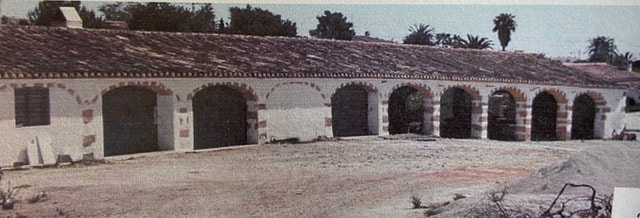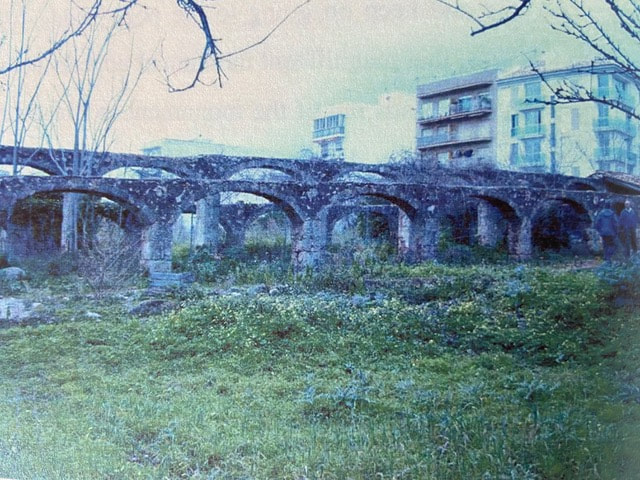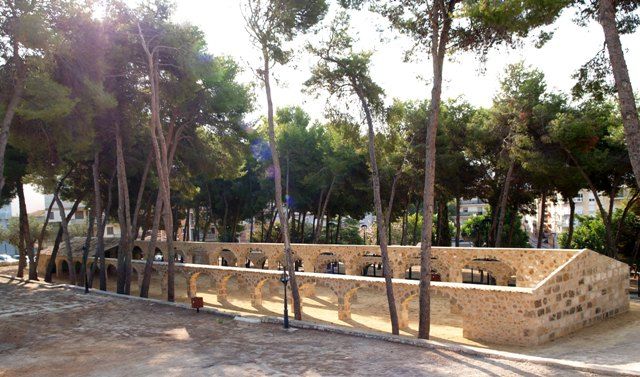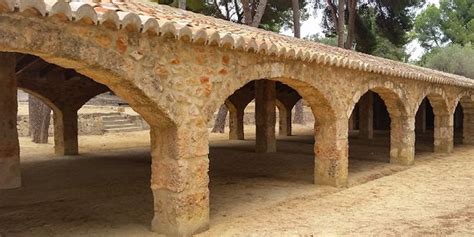|
Here's a brief summary of the activities planned for the next couple of months:
May 17, Wednesday, at 7:00 p.m. A talk about the amphorae discovered underwater in the Xàbia area. May 26, Friday, at 18:30, An guided walk from the Roman ruins near the Parador, to the Séquia de la Noria, through the Saladar. June 17, Saturday (time to be determined), a visit to the Portixol Civil war battery.
0 Comments
These rural architectural structures - unique to the Comunidad Valenciana - appeared at the end of the 18th century, with the onset of the raisin trade, which brought work and much wealth to the Valencian region, especially the Marina Alta. The process of scalding the grapes before putting them out to dry, made their skin crack, thus speeding up the drying process.This, however, made them very vulnerable to mould, caused by rain, night humidity and morning dew. Therefore the grapes had to be removed to a shelter on rainy days and at night. This was the purpose of the riuraus.
But where could the word „riurau“ have come from? It is not Valenciano, nor is it Spanish. There are several theories, most of which can be disregarded. One such theory is that it came from the Arab language: „raf“, meaning roof or shelter. Duplicating the word, as is sometimes done in Valenciano, produces raf-raf, which could have been distorted to riu-rau. However, this is very unlikely since riuraus only appeared some 200 years after the expulsion of the moors. Another even more unlikely theory is that it came from the English „ raisin house“, distorted to riu rau. However, this seems rather fanciful since in the 19th century when these constructions appeared, there were virtually no British people living in the region who could have coined the phrase ! A third theory is that it could have something to do with „riu“, river, as of „drainage“ of the roof……..well, one wonders how seriously one can take that ! The most plausible version, one that Luis Fornès elaborates in his book „Valencian Riuraus“, is that it comes from the Occitan language, more precisely, from an Occitan dialect: Provençal. Since the 16th century, there was considerable emigration from Southern France, mainly from the Provence, where Provençal was spoken, a dialect that has much resemblance to Catalan, Valenciano and Mallorquin. This fact facilitated emigration to and integration into the Kingdom of Valencia. It is therefore not too far-fetched to surmise that there could have been some influence on the language. A riurau was almost always either on its own in a rural area, or was attached to a rural house - casa de campo. The theory is that these rural buildings could originally have been called „ostal rural „ ( rural house ), which in the Provençal dialect would be „ ostau rürau„ since the -al endings become -au in Provençal. With time, the noun „ostau“ must have been dropped, and the shelter was just called „ rürau“. Since the „ü“ , which is generally described as being somewhere between an „i“ and a „u“ , does not exist in Valenciano, it could have been pronounced as „ iu “ by the locals. So it would seem that the name came from its rural status : „rural“ > „rürau“ > „riurau“. Of course, so far there have been no conclusive studies on the etymology of the word riurau, so it is still open to debate. This latter seems to be the most probable explanation until a new theory appears. Source : „ Valencian Riuraus „ by Lluis Fornés |
ACTIVITIES
Categories |
- Home
- Blogs
-
Projectes
- Premio de Investigación - Formularios de Inscripción
-
Traducciones Translations
>
-
DISPLAY PANELS - GROUND FLOOR
>
- THE STONE AGES - PALAEOLITHIC, EPIPALAEOLITHIC AND NEOLITHIC
- CAVE PAINTINGS (ARTE RUPESTRE)
- CHALCOLITHIC (Copper) & BRONZE AGES
- THE IBERIAN CULTURE (THE IRON AGE)
- THE IBERIAN TREASURE OF XÀBIA
- THE ROMAN SETTLEMENTS OF XÀBIA
- THE ROMAN SITE AT PUNTA DE L'ARENAL
- THE MUNTANYAR NECROPOLIS
- ARCHITECTURAL DECORATIONS OF THE PUNTA DE L'ARENAL
- THE ATZÚBIA SITE
- THE MINYANA SMITHY
- Translations archive
- Quaderns: Versión castellana >
- Quaderns: English versions >
-
DISPLAY PANELS - GROUND FLOOR
>
- Catálogo de castillos regionales >
- Exposició - Castells Andalusins >
- Exposición - Castillos Andalusíes >
- Exhibition - Islamic castles >
- Sylvia A. Schofield - Libros donados
- Mejorar la entrada/improve the entrance >
-
Historia y enlaces
-
Historía de Xàbia
>
- Els papers de l'arxiu, Xàbia / los papeles del archivo
- La Cova del Barranc del Migdia
- El Vell Cementeri de Xàbia
- El Torpedinament del Vapor Germanine
- El Saladar i les Salines
- La Telegrafía y la Casa de Cable
- Pescadores de Xàbia
- La Caseta de Biot
- Castell de la Granadella
- La Guerra Civil / the Spanish civil war >
- History of Xàbia (English articles) >
- Charlas y excursiones / talks and excursions >
- Investigacions del museu - Museum investigations
- Enllaços
- Enlaces
- Links
-
Historía de Xàbia
>
- Social media
- Visitas virtuales
- Tenda Tienda Shop






 RSS Feed
RSS Feed
